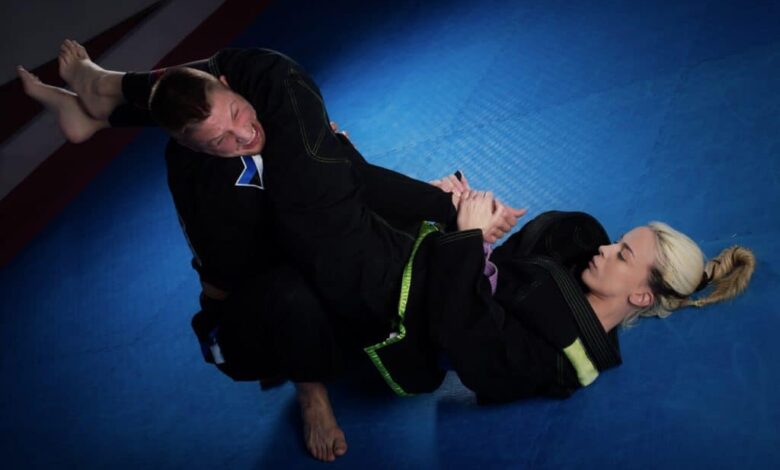Self-Defense for Women: Why Every Woman Should Consider Taking a Class

Self-defense classes offer practical skills and a sense of empowerment that can benefit women in numerous ways. Beyond physical techniques, self-defense training helps build confidence, resilience, and awareness, equipping women to handle various situations in daily life. Here’s a closer look at the unique benefits of self-defense for women and why every woman should consider taking a class.
1. Increased Confidence and Self-Empowerment
One of the most transformative aspects of self-defense training is the confidence it instills. Knowing how to protect oneself changes how women approach situations, giving them a sense of empowerment and security.
- Personal Empowerment: Learning self-defense techniques allows women to feel more in control, fostering a sense of empowerment and autonomy.
- Enhanced Confidence in Public Spaces: With self-defense training, women can feel more at ease in a variety of settings, whether walking alone at night, commuting, or traveling.
- Greater Self-Assurance in Confrontations: Self-defense classes teach skills for handling confrontational situations calmly, enabling women to assess and react with greater confidence.
Why It Matters: Confidence in one’s ability to handle challenging situations fosters personal growth and empowers women to live more freely, without the constant fear of potential threats.
2. Practical Skills for Real-World Situations
Self-defense classes in Long Island focus on techniques that can be applied in real-life situations, teaching women how to respond effectively to various threats. From escaping holds to using leverage against an opponent, self-defense provides valuable tools for personal safety.
- Defense Techniques for Common Scenarios: Self-defense classes cover scenarios like grabs, strikes, and other physical confrontations, teaching women how to respond quickly and effectively.
- Skills for De-escalation and Boundary Setting: Self-defense isn’t just physical; classes also focus on verbal techniques and body language to defuse potential threats and set clear boundaries.
- Improved Reaction Time: With practice, self-defense training helps women sharpen their reflexes and respond instinctively, minimizing hesitation in critical moments.
Why It Matters: Having practical self-defense skills equips women with options, allowing them to feel prepared and proactive in safeguarding their well-being.
3. Increased Awareness and Intuition
By learning to assess surroundings and understand behavioral cues, women become more vigilant and perceptive.
- Enhanced Situational Awareness: Self-defense classes teach techniques for scanning the environment and identifying safe exits, helping women stay alert and aware.
- Trusting Intuition: Training emphasizes listening to one’s instincts, helping women become more attuned to their intuition and recognizing when a situation feels “off.”
- Personal Space Awareness: Self-defense also promotes an understanding of personal space and boundaries, enabling women to confidently assert and maintain them.
Why It Matters: Situational awareness and intuitive skills give women a proactive advantage, enabling them to avoid risky situations and feel more secure in their day-to-day lives.
4. Mental Resilience and Stress Management
Self-defense training builds mental resilience, equipping women to handle stress and adversity with calmness and confidence. These skills extend beyond physical safety, benefiting overall well-being and personal growth.
- Overcoming Fear and Anxiety: Facing and mastering self-defense techniques can help women confront and manage fears, reducing anxiety about personal safety.
- Stress Relief and Focus: Physical training releases stress, while focusing on techniques helps develop a calm, grounded mindset, valuable in both self-defense and daily life.
- Developing a Growth Mindset: Self-defense training encourages perseverance and resilience, teaching women to push through challenges and adapt to new situations.
Why It Matters: Mental resilience fosters a sense of control and calmness, enabling women to handle adversity with strength and clarity, both in self-defense and in life.
5. Empowering Community and Support Network
Self-defense classes create a supportive environment where women can learn, grow, and connect with others who share similar goals. The sense of camaraderie and encouragement builds friendships and provides emotional support.
- Sense of Community: Self-defense classes often foster a strong sense of community, creating bonds with like-minded women who understand and support each other’s goals.
- Mutual Encouragement and Accountability: Practicing self-defense skills with others builds trust and confidence, with women helping each other progress and succeed.
- Safe Space for Growth: Self-defense classes are often empowering spaces where women feel safe to challenge themselves, learn new skills, and gain self-assurance.
Why It Matters: The support and encouragement from a community can amplify the positive effects of self-defense training, creating a nurturing environment that promotes self-growth.
Conclusion
Self-defense classes offer women more than just practical techniques—they provide a path to empowerment, self-confidence, and a sense of security that enhances all aspects of life. Whether it’s through practical skills, mental resilience, heightened awareness, or the strength of a supportive community, self-defense training empowers women to feel safer and more in control. For every woman looking to boost her confidence and embrace her strength, a self-defense class is a powerful step toward personal empowerment and safety.
See Also : Piano Lessons for Kids with Special Needs: Benefits and Considerations
FAQs
1. What can I expect from a beginner’s self-defense class?
Beginner classes typically cover basic techniques for escaping holds, blocking strikes, and using verbal cues. They also focus on situational awareness and mental preparation.
2. Do I need to be physically fit to take a self-defense class?
Self-defense classes are designed for all fitness levels, and many techniques focus on leverage and strategy rather than physical strength.
3. How often should I practice self-defense skills?
Practicing once or twice a week helps build muscle memory, but frequency can be adjusted based on your schedule and goals.
4. Will self-defense classes teach me how to prevent confrontations?
Yes, self-defense training often includes techniques for de-escalation, boundary setting, and situational awareness to help avoid confrontations.
5. Can self-defense training help with confidence outside of safety situations?
Absolutely! The confidence, resilience, and awareness gained in self-defense training often carry over into other aspects of life, empowering women in their personal and professional lives.




